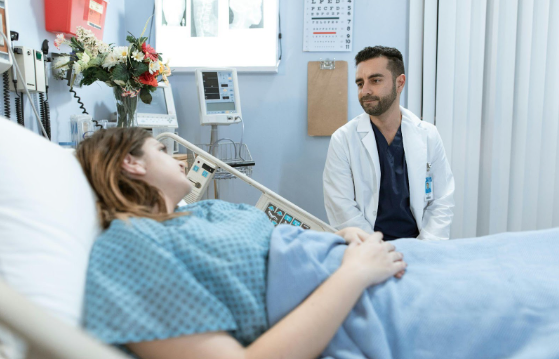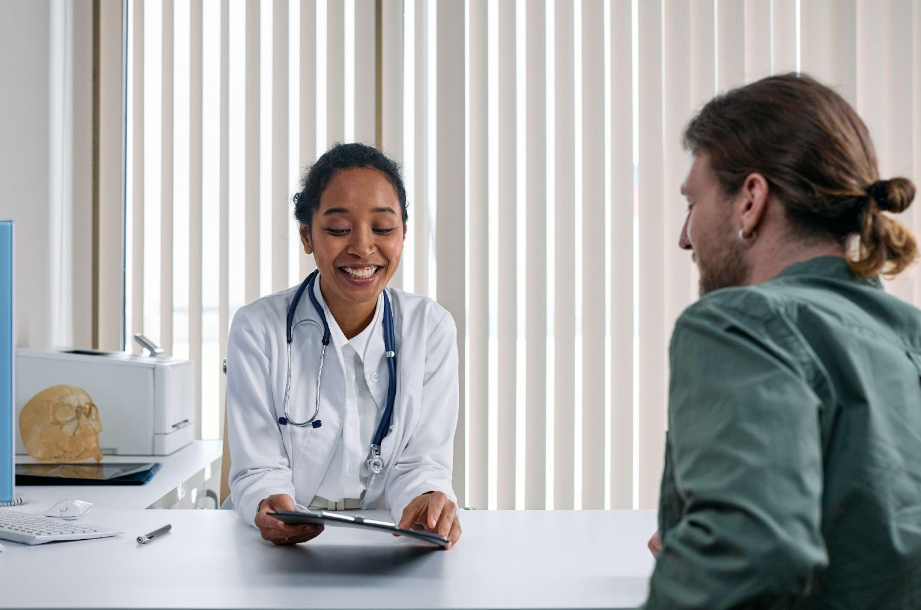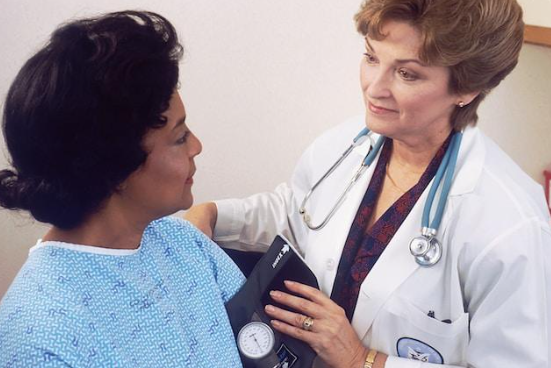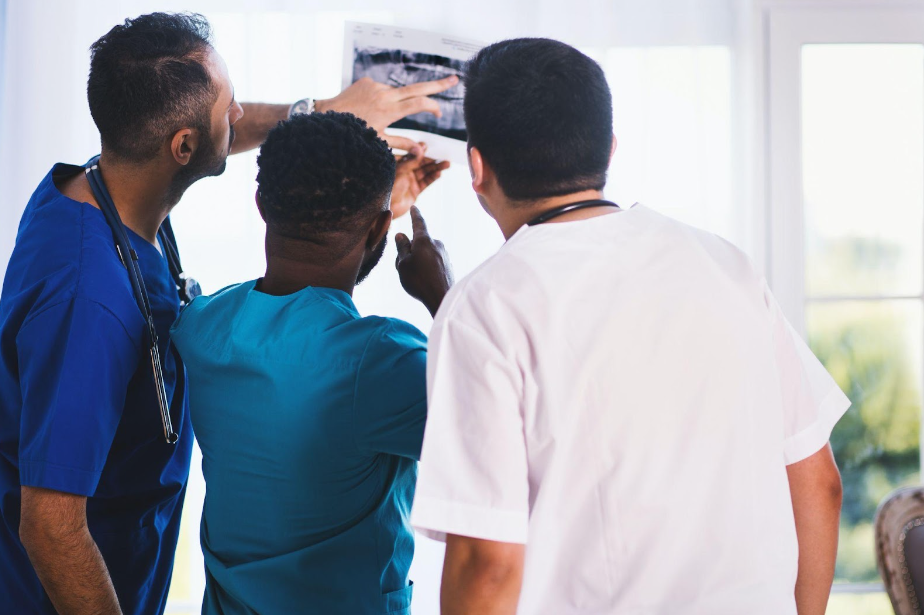Understanding the Differences: Endoscopy vs. Colonoscopy

Navigating the realm of healthcare can sometimes be overwhelming, especially when faced with so many medical terms and procedures. Among these, endoscopy and colonoscopy often come up in discussions related to gastrointestinal health. But what exactly do these terms mean? What sets them apart from each other?
Read on as we unravel the mysteries surrounding the two procedures, providing you with a clear understanding of their differences.
What Is Endoscopy?
Endoscopy is a medical procedure that allows doctors to examine the interior of specific organs or cavities in the body using an endoscope. An endoscope is a long, flexible tube with a camera and light attached to its end. The gastroenterologist inserts the instrument through natural openings in the body, such as the mouth or anus, or through small incisions made during surgical procedures.
They use it to visualize various organs, including the esophagus, stomach, small intestine, colon, respiratory, and urinary tracts. Endoscopy also helps diagnose ulcers, inflammation, tumors, or abnormal growths. The procedure is generally performed under sedation to ensure the patient's comfort.
What Is Colonoscopy?
Colonoscopy is a specific type of endoscopy focusing on examining the colon, also known as the large intestine. The colonoscope, a long, flexible tube similar to an endoscope, is used to view the colon's lining. The instrument is carefully inserted through the anus and advanced through the entire length of the colon.
This procedure primarily detects abnormalities in the colon, including polyps, which are small growths that can potentially develop into cancer. If the doctor finds polyps during the process, they remove them and send them for further analysis. Early detection and removal of polyps dramatically reduce the risk of developing colon cancer.
Area of Examination
Endoscopy is a versatile procedure that allows doctors to examine various organs and systems within the body. This wide range of examination areas enables doctors to diagnose and evaluate conditions affecting different organs and systems.
Unlike endoscopy, colonoscopy focuses on examining the colon or large intestine. The procedure allows doctors to visualize the entire length of the colon and analyze its lining for any abnormalities, primarily targeting the detection and prevention of colon cancer.
Why are Endoscopies and Colonoscopies Done?
The primary purpose of endoscopy is to diagnose and evaluate various conditions affecting the organs. It can help identify and assess issues such as ulcers, inflammation (e.g., gastritis, esophagitis), tumors (benign or malignant), and abnormal growths (e.g., polyps) within the gastrointestinal tract, respiratory tract, or urinary tract. This thorough evaluation provides valuable insights into the cause of symptoms, aids in diagnosing diseases, and helps doctors plan appropriate treatments.
On the other hand, colonoscopy is mainly conducted as a screening and diagnostic tool for colon cancer. Its primary purpose is to detect and prevent the development of colon cancer by identifying and removing precancerous polyps. Early removal significantly reduces the risk of colon cancer and increases the chances of successful treatment if cancer is detected.
Scope Insertion
During an endoscopy, the doctor inserts the endoscope through natural openings in the body or small incisions made during surgical procedures. For example, in an upper gastrointestinal endoscopy (esophagogastroduodenoscopy, or EGD), the instrument is inserted through the mouth and passed down the throat.
A bronchoscopy involves inserting the device through the nose or mouth to examine the airways and lungs. The exact entry point and route depend on the specific area. In contrast, colonoscopy involves the insertion of the colonoscope through the anus and into the rectum to reach the colon. The flexible nature of the instrument facilitates navigation through the twists and turns of the colon, enabling a thorough evaluation.
Length of the Procedure
The duration of an endoscopic procedure can vary depending on the specific organ being examined. The time taken can range from 15 minutes to an hour. The complexity of the process, the extent of examination required, and any additional interventions or treatments can influence the duration.
Some endoscopic procedures, such as a routine
upper gastrointestinal endoscopy (EGD) that examines the esophagus and stomach, may be relatively shorter. On the other hand, procedures like
endoscopic retrograde cholangiopancreatography (ERCP) that assess the bile and pancreatic ducts can take longer due to the intricacies involved.
Compared to endoscopy, colonoscopy generally takes longer as the entire colon needs to be examined. The procedure typically lasts around 30 minutes to an hour. The careful navigation of the colonoscope throughout the colon ensures a comprehensive examination. However, the actual duration may vary depending on factors such as the presence of polyps or the need for additional procedures like biopsies or polyp removal.
Preparation
The preparation for an endoscopy may vary depending on the specific organ being examined. It may involve fasting for a certain period before the procedure to ensure a clear view of the organ. For example, in an upper gastrointestinal endoscopy (EGD), fasting for a few hours before the process is typically required to empty the stomach. However, fasting may not be necessary for some endoscopic procedures, such as bronchoscopy, which examines the airways.
The preparation for a colonoscopy is more extensive compared to an endoscopy. It often involves a special diet and restrictions on food intake. A day before the procedure, individuals should have a low-fiber diet and consume only clear liquids. Also, the doctors may prescribe a laxative or bowel cleansing solution to cleanse the colon thoroughly. This preparation ensures a clear view of the organ during the procedure and improves the effectiveness of detecting any abnormalities.
Risks and Complications
While complications are rare, some potential risks are associated with endoscopy. These risks can include bleeding, infection, perforation (a small tear or hole in the organ being examined), or adverse reactions to anesthesia or sedation. It is important to remember that these risks are minimal and that, when carried out by skilled healthcare professionals in appropriate settings, the procedures are generally safe.
Similar to endoscopy, colonoscopy carries certain risks and complications. These can include bleeding, infection, and perforation. Due to the length and curvature of the colon, there is a slightly higher risk of perforation during colonoscopy than other endoscopic procedures. However, it's crucial to remember that these risks are uncommon and occur in a small percentage of cases, and the benefits significantly outweigh the potential risks.
Follow-up Procedures
The doctors may recommend further diagnostic tests or treatments depending on the findings of the endoscopic examination. For example, if abnormal tissue is detected, a biopsy may be taken for further analysis to determine the nature of the tissue (benign or malignant). Sometimes, the doctor may recommend additional imaging studies or laboratory tests to evaluate the condition comprehensively.
After a colonoscopy, the doctor may suggest additional tests, such as a biopsy or imaging studies like a CT scan or MRI, to confirm the diagnosis and determine the extent of the condition. They may also advise regular surveillance colonoscopies for individuals with a history of polyps or other risk factors.
Age Recommendation
Endoscopy can be performed on individuals of all ages, including children and adults. The need for an endoscopic procedure is determined based on specific symptoms, medical history, and the suspected condition affecting a particular organ.
On the other hand, colonoscopy is a screening test for colon cancer for individuals aged 50 and older. However, it's important to note that the age at which colonoscopy is recommended may vary depending on factors like family history of colon cancer, personal medical history, and risk factors. The professionals may advise some individuals with a higher risk to undergo the procedure at an early age.
Similarities Between Endoscopy and Colonoscopy
Sedation
Both endoscopy and colonoscopy are typically performed under sedation to ensure the patient's comfort and minimize discomfort. Sedation options may vary depending on the specific procedure, the patient's medical condition, and the doctor's and patient's preferences.
Standard sedation methods include intravenous medications to induce relaxation and drowsiness. The level of sedation can range from mild to high to provide a pain-free and anxiety-free experience for the patient during the procedure. It also helps to minimize gag reflexes and reduce any potential discomfort.
Minimally-Invasive Procedure
Endoscopy and colonoscopy both fall under the category of minimally invasive procedures, ensuring a less intrusive approach to patient care. During endoscopy, the instrument is inserted through natural openings in the body, such as the mouth for upper gastrointestinal endoscopy or the anus for lower gastrointestinal endoscopy. This eliminates the need for large surgical incisions and reduces trauma to the surrounding tissues.
Similarly, colonoscopy involves the insertion of the colonoscope through the anus, allowing access to the entire length of the colon. By utilizing a minimally invasive approach, both endoscopy and colonoscopy aim to minimize patient discomfort, promote faster recovery, and reduce the risk of complications associated with more invasive surgical procedures.
Understanding these differences allows you to be better informed and prepared when undergoing endoscopy or colonoscopy procedures. It is important to consult with healthcare professionals who can provide personalized recommendations and address concerns or questions specific to each individual's health status and needs.
Are you in need of a professional and reliable gastroenterology service? Visit
Northlake Gastroenterology Associates today to schedule your consultation. Our experienced team of specialists is here to provide compassionate care and expert guidance for all your gastrointestinal health needs. Call
985-542-1334 today to
book a consultation. Your well-being is our priority!
More Blogs







© All Rights Reserved 2023 | Northlake Gastroenterology Associates





